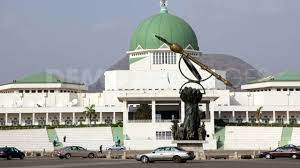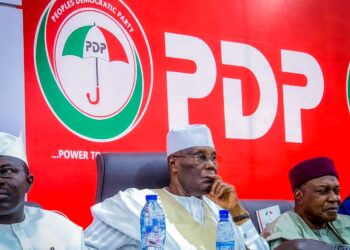 Blueprint examines past hopes and efforts at national consensus turned awry resulting in public cynicism about the correct one in this report by Emeka Nze, the conference is seen as a welcome development considering optimism and positive attitude among many delegates to the conference. The big question is where will the resolutions of the conference end this time?
Blueprint examines past hopes and efforts at national consensus turned awry resulting in public cynicism about the correct one in this report by Emeka Nze, the conference is seen as a welcome development considering optimism and positive attitude among many delegates to the conference. The big question is where will the resolutions of the conference end this time?
The vicarious adjournments on the issue of voting pattern as a means of attaining resolutions at the ongoing National Conference was a source of worry to many Nigerians who fear that the conference, going by its delay on decision making would be a waste of time and resources after all. Emeka Nze examines the issues and pondered on how the tug of war will be won and lost.
The game of tug of war is one that tests the strength of the players. It is anchored on the ability of the players to pull or haul the rope or whatever is at stake to their own side across the demarcating line. Therefore, in choosing the players, every side favours individuals or people who have intimidating record of strength, those whose physique indicate that cannot only win the game but will equally intimidate their opponents into a walkover without necessarily embarking on the game. But where both sides have selected people seemingly powerful commensurately, it means that a very strong game is in the offing.
The ongoing national conference, like a tug of war, has demonstrated promises of an interesting and robust debate about to ensue. From the calibre of delegates to their present and past standings in the society, it is evident that the delegates were well selected across the landscape of Nigeria. So far, many of them have demonstrated that they understand the geographical entity called Nigeria. Undoubtedly, many of them were part of or followed the evolution of the country and by the additional information gleaned at the conference; they have equally been part of the troubles with Nigeria.
From the North-west to the North-east; from the North-central to the South-west to the South-south and then, the South-east, among the delegates, there are the bad, the ugly, not so good; the good and the well endowed, intellectually well endowed, men and women of means and then the “timber and the calibre.” There are also the thugs, the troublemakers and the trouble-shooters and there are the gentlemen and ladies. All these combine to make the national conference a pleasant spectacle to behold. All the sides are blessed; blessed with men, blessed with means and blessed with all.
The debate last week also demonstrated that groups were not willing to give chances. They marshalled out their arguments in some logical and coherent manner. Whether for or against the 75percent, a figure said to be near consensus as a means of arriving at decisions, the arguments were germane among the contributors of all divides. While some argued that the international best practice favoures 2/3, some see 3/4 as what is best in this situation given President Goodluck Jonathan’s inaugural speech which enjoined the delegates to reach a consensus on virtually every issue. The president had stated in his speech that where they cannot reach a consensus, a vote of 75 percent would make the decisions all embracing. However, some groups also averred that in an instance where 74 percent has voted on a particular issue, it would lead to a minority carrying the day since the 26 percent would have voted in the negative. That was the tug of war and by last week, the conference had adjourned more than four times in a fruitless search for a middle ground. They even sent a 50-man emissary to untie the riddle.
The concomitant fear among the people of the country is that for the conference to have wasted time in debating only the rules of procedures, the ominous sign is clear that when more contentious issues come to the table, the game of tug of war would be more pronounced which would leave most of the burning issues unresolved. More so, there is a seeming dichotomy between the North and the South in the ensuing debates. While the North shared preponderance of opinion on the 75 percent, the South seemed to have supported 2/3. This division is said to have arisen out of the fear that the South might be on the way to re-claiming its oil resources through the conference and the only way to stop it is by ensuring that they do not achieve overwhelming majority on the issue.
However, some of the delegates think that the division between North and South is imaginary as there has not been any empirical evidence of counting on the floor of the conference which indicated any polarization of views along the North and South. According to Alhaji Adamu Waziri, a delegate at the conference on the list of the Federal Government nominations, the conference is characterized by individual contributions which have not been subjected to any vote. Waziri stated that the conference equally should not be afraid of such divisions as the dichotomy already exists from the beginning of the country. But a Kwara delegate, Ahmed Mohammed stated that since no zone would score a winning vote alone on some of the issues they brought to the conference, he envisaged a situation where each zone would lobby others as the conference progressed, thereby reinforcing the unity of purpose of the conference. Other delegates also say the conference would make progress in the nearest future referring to most of the disagreements as the teething problems of the conference.
The president’s speech had forbidden the country not to delve into the corporate existence of the country and many of the leaders at the conference ab-initio swallowed it lock, stock and barrel but from the statement of the Lamidon Adamawa, His Royal Highness, Dr Muhammadu Barkindo Mustapha, that he would gladly move into the Republic of Cameroun where his authority extended, it seems the president’s agenda is being thwarted as some groups were aroused to the phenomenon of secession which they have always been afraid of mentioning. The question is, if there be a sincere and frank talk, now that the Lamido Adamawa has fired the first salvo, many of the ethnic nationalities which make up the country would stick to self actualisation and that may be goodbye to Nigeria. Who wins this tug of war at the end of the day?



